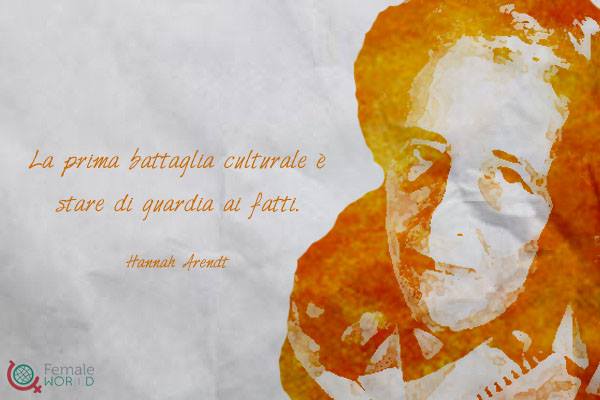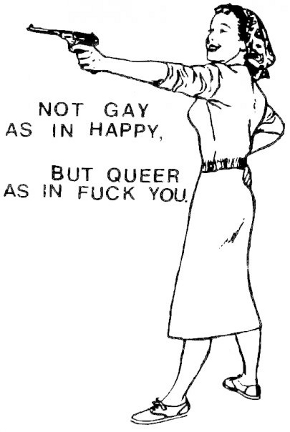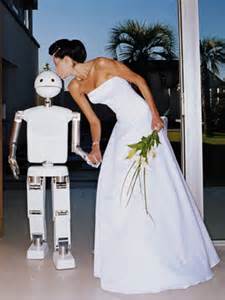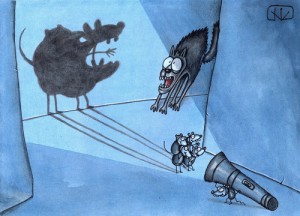< Purpose >
This is a personal blog. Which means the purpose of this site is unclear to me, and it may evolve as human ideas usually do. For now, it is a space to hold a new spark in the life of my mind.
To house the vita contemplativa, as Hannah Arendt would call it, which is a Platonic life of dwelling in eternal abstractions, different from the equally important vita activa of labor, work, and action in the social sphere of the zoon politikon (πολιτικὸν ζῷον) – being the political animals that we are. In this blog, I seek to reconcile the differences between my “labor” (the random moonlight stuff that pays my bills), my “work” (indymedia writing, video, design, volunteer technical support), and my “action” (the activism and participation in political/intellectual/artistic discourse.)
As Arendt wrote in The Human Condition, the social animal and political being that we are requires space for individuals to achieve freedom by building towards a common world. This construction work that is part of the vita activa – is one that is both existential and aesthetic.
I am excited to think about these spaces as being digital spaces, rather than physical spaces for bodies. The building of common spaces online, in the margins with sovereignty – in this day and age when our consciousness navigates the interweb as avatars, and our physical data lives beyond our bodies, a long shadow od data, with gravesites we have yet to prepare, for our undying minds.
Se la vita contemplativa è immortale, dove si vive?
 “The first cultural is to stand guard over the facts.” – Hannah Arendt
“The first cultural is to stand guard over the facts.” – Hannah Arendt
Project Natasha
Up till now, I have only expected one of these aspects of my active life to pay (the moonlight part), and this funds the other two aspects which are extremely underpaid or voluntary. But I am getting a bit older, and desire a bit more security in terms of providing a practical skillset to do practical work in the world. I like to build things, and I think the left needs more infrastructure and less theory. I am now training in two new fields: starting as a construction worker (electrician) during the daytime, while gaining certification in IT (networks, security, LAN & wireless setup, general troubleshooting) and improving my skills in web/software development/design.
My goal is to become an electrical/computer engineer, and also a roboticist. I want to create my robot wife. In the words of singer Emily Hines from Metric: “The maid needs a maid.” Wife has been a performative technology of domestic care labor, allocated predominantly to women – but I identify as a gender-fluid/neutral cyborg dog-partner, and I’m too queer for a husband. (Sorry, mom and dad.) My best friend, and the first girl I ever kissed, passed away this year, and during our last conversation before she died, she asked me to marry her. I agreed. I plan to honor that promise, and she will be the one I love for the rest of my life. This is Project Natasha: preserving the digital shadow of my loved one, and preserving her “digital body” in a way that gives her dignity. Natasha loved Asimov and sci-fi robots, and I think she would find it funny if I built a robot and name it Natasha, and married that robot.
So that’s my little dream project, which I will share here, and I think it might take me a decade for me to achieve this, since I know almost nothing about robotics right now. But I’m patient and steadfast with important life projects like the sanctity of marriage. ^_~
My background is as a multimedia artist: electronic music, sculpture & 3D mediums, video DJ’ing, circus/aerial acrobatics, performance poetry, and all four elementz of hip hop: bgirl, graff/street artist, emcee, and DJ of resistance movement music. My educational background is in political economy, history, and officially math, but with a second life in a BA program mixing coursework in: ecology/evolutionary biology/primatology/bio-anthro/cogsci/neuro. I did graduate coursework in quantitative research methods for public policy, and a certificate towards international human rights law. I am also very interested in feminist principles of qualitative research, oral history, community-based participatory action research, and arts-as-research approaches for working with youth and elderly members of a community. I also participate in indymedia: writing for lefty outlets, and producing public access television. Finally, I have worked in several nonprofits as a community organizer, focusing on Chinatown housing and labor justice, and Latino/Asian/Afro-Caribbean immigrant labor in informal markets.
For years now, I have made a goal for myself to learn how to build web-based and Linux applications and becoming a hacker in the free software/ open source culture. I’ve never made the time. Finally, this year, through participating in an activist training in security/privacy, with women human rights defenders from around the world, I am finding the activist motivation and supportive community to begin for real – and dedicate myself to this learning.
The drive behind this project: of learning IT, coding, and cybersecurity, is also in order to have a more sustaining form of labor, a more socially valued kind of work, and a tool for more effective action. I know I don’t want to be a lawyer or an academic, two other paths I have considered, that are simply too constraining for me; I need to be able to travel and write, and take time for artistic projects; I don’t like competitive career trajectories in conformist spaces. I like to learn about everything, and want to be free to pursue my passions without a strict Capitalist track of specialization. I think providing technological and communications services, along with ESL/Chinese language teaching, would allow me this kind of flexibility and mobility.
I also have a strong interest in social theory (in modern intellectual history, contemporary philosophy and post-functionalist sociological texts, esp. on self-organizing networks, performativity, labor, biopolitics & subjectivization), as well as a strong desire to participate in feminist discourse and live out Gramsci’s ideal of the organic intellectual. I’m also very interested in the practice of data and design for independent investigative journalism. I like the kind of community-based intellectual spaces created by Anarchist Bookfairs and indy publications, and I’m interested in being a digital librarian to build spaces for learning and archiving online. For me, anarchism means 1) creating utopic solutions here and now, along the margins of the present system of social and political institutions, without coercing others to adopt the same system; 2) to live fairly and interdependently, with respect and mutual aid, in queer open families, creating sovereign spaces and infrastructre off the grid; and 3) to participate in local and global movements for social justice, no matter what the personal cost, and live in accordance with my aesthetic and existential drive. My idealism is what I hold at my core – the part of me that I can never sell or betray. My daily choices arise out of the constant struggle between my ideals, my conscience, my hunger, my care for others, and my selfishness need to protect myself, and make space for my own freedom. I will use this blog as a repository for some of my passing ideas, as I try to make sense of the conflicting aesthetic, ethical, creative, and destructive drives that flavor my conscious experiences.
====================
There are several other subjects of interest to me, which I will also write about in this blog:
- Feminism and its many waves. The current split between mainstream “women’s rights” organizations and the queer/trans-inclusive 3rd wave feminist movement, which is more inclusive of voices from people of color and the global south, in self-representation. (Can the subaltern speak?) This latest wave of feminism sometimes pejoratively called “post-feminism” by the old schoolers. I am interested in the way that the internet facilitates new spaces for feminist discourse and activism. Particularly interested in new cyberfeminist activism in privacy, security, surveillance, internet sovereignty and free culture. Also interested in debates on sex work, human trafficking, feminism, and law: family, gender-based violence, labor, migration, crime and transformative justice, international human rights, legal history and anthropology, and critical legal theory.
- Migrant labor rights, changes in the American labor movement, unions, New Labor, informal trades, and the feminization of migration. Human trafficking and labor abuses against immigrants and poor people. Community organizing training and resources. Local laws and campaigns for social justice, health, housing, living wage, and job (re)training in city based on service labor in ICE (not FIRE) industries.
- Disability rights, crip theory, and intersection with medical technologies, and “cyborg feminism.” The gendered history of medical treatment for mental illness. Mental health, the profit-driven DSM diagnoses, and the pharmaceutical/psychiatry industries. Understanding the Mad Pride Movement, Thomas Sasz, Foucault’s theories on madness and biopolitics, as well as new neuroscientific research, and medical opposition to critics of psychology as pseudo-science. Ties between the movement for mental health rights and U.S. movements against mass incarceration, militarized policing, and immigrant detention. Also: Stigma, marginality, disability and crip theory, the radical activist and underground art worlds in New York City, race/ethnicity/class and identity politics in American social justice movements: especially, queer/trans people of color (QTPOC) feminism and its opposition to mainstream middle-class feminism. Being a queer, 3rd culture, codeswitching, gender-fluid woman-body in a time of radical trans movements beyond marriage equality.
- Personal data on the internet, and the voluntary submission of “quantified self” data by users for the sake of improving their productivity. It is submitting the cyborg-body (of phone-self-laptop) to a kind of numeric alienation, and a very Capitalist logic enforced upon the body. It is also allowing for complete vulnerability to governmental and corporate observation, the ubiquitous eye of technology. Big Brother in the form of somma, in the Brave New World of entertainment apps. How does this tie into American militarization and imperialism? Since university, I have had a long-term interest in intellectual property rights, and trade agreements related to technology and social policy. Focus on globalization in the “American era” and post-Soviet debates on modern Capitalism, debt and the global financial system, trade agreements and treaties, international governing institutions, the United Nations and the growing civil society regime of “human rights” NGO’s, oil and resource wars, religious conflict, American foreign policy, the economic rise of China and the Asian Pacific region, Chinese involvement in economic development of Africa, migrant labor and border control policies, surveillance and policing, racial discrimination and the prison industrial complex, the decline of the welfare state and changes in healthcare/education/labor policies, growing socioeconomic inequality and civil unrest around the world, populist rhetoric and post-Occupy Anarchism, technological change and its impact on journalism, education, and entertainment industries.
- Academic social science and post-secondary education in the afterlife of MOOC’s, open science publishing, blogs, and the ongoing tension between quantitative “big data” techniques and qualitative research as flavored by postmodern theories – understanding various methodologies for research and teaching, as well as the key contributions of cannonical thinkers in modern philosophy, sociology/anthropology, political economy, machine learning, psychology/neuroscience, and law. Reading and responding as an anarchafeminist outsider and amateur to new research published in academic journals and blogs.
=====================
Ending with another quote from Hannah Arendt:
“Persona”: mask, originally, the role chosen by the ego for the game among and with human beings, the mask that it holds in front of itself in order to be non-identifiable.
Person: can also, though, be the role or the mask that we are born with, the one given to us by nature in the form of the body and the gifts of the mind, and by society in the form of our social status.
Person in the first sense is actually character, insofar as the person is here and is the product of the ego. The question of identity arises in both cases, in case of the character, in such a way that the ego remains the sovereign master of the character, its product. In the second case, in such a way that the person conceals something else, something apparently deeper, and the ego becomes no more than the formalistic principle of the unity of body and soul, on the one hand, [and] of the coherent relatedness of multiple gifts, on the other.
In contrast: “persona” as “per-sonare” – to sound through.
-Hannah Arendt, Denktagebuch (freely translated by Stefanie Rosenmüller )
==========
Click here to download text on Arendt’s “Reconciliation and the Building of a Common World”
**The mouse/cat shadow cartoon is a Hacktivist Mutual Aid spinoff of the Tactical Tech sticker illustrating a mouse with a digital shadow shaped by a cat. What worlds can we little mice build in common, to combat the Big Cat? Learn more about your digital shadow here.

